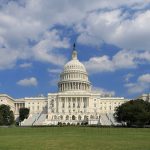Antihydrogen neutral as charged, Marquette researcher finds
Research conducted at CERN laboratory near Geneva, Switzerland
MILWAUKEE — The charge of antihydrogen – the antimatter counterpart of hydrogen – is neutral, according to a paper published this week by a team of scientists that includes a research assistant professor of physics at Marquette University.
Dr. Timothy Tharp and 38 other colleagues conducted research as part of the ALPHA Collaboration at the CERN laboratory near Geneva, Switzerland, to reach the findings published this week in the scientific journal Nature.
The ongoing research at CERN may help the scientists resolve the long-standing question of why there appears to be so much more matter than antimatter in the observable universe.
According to the Standard Model of particle physics, the charge of antihydrogen should be neutral. However, it was difficult to test because producing antimatter and measuring its properties is experimentally challenging.
“We expected antihydrogen to be electrically neutral – the same as hydrogen – but this hadn’t been tested previously,” said Tharp, who joined Marquette for the spring 2016 semester and was with Aarhus University when conducting the research at CERN.
Tharp and his colleagues studied trapped atoms of antihydrogen and provided new evidence for their charge neutrality, improving measurement precision by a factor of 20 compared to previous measurements.
Since the charge of the antiproton – the antimatter counterpart of the proton – is known to relatively high precision, the result helps to refine the bound on the charge of the positron – the antimatter counterpart of the electron.
NOTE: This press release was submitted to Urban Milwaukee and was not written by an Urban Milwaukee writer. While it is believed to be reliable, Urban Milwaukee does not guarantee its accuracy or completeness.
Recent Press Releases by Marquette University
New Marquette Law School Poll finds large majority of Wisconsin voters not yet tuned in to who is running in major 2026 elections
Oct 29th, 2025 by Marquette UniversityNo candidate has established strong position in public favorability in governor, state Supreme Court races; large majorities of voters undecided
New Marquette Law School National Survey Finds Large Majority Think Political Violence is a Big Problem, But With Sharp Partisan Differences
Oct 1st, 2025 by Marquette UniversityAmericans are overall pessimistic on reducing intense political conflict; half of those polled say heated language by leaders makes violence more likely






















